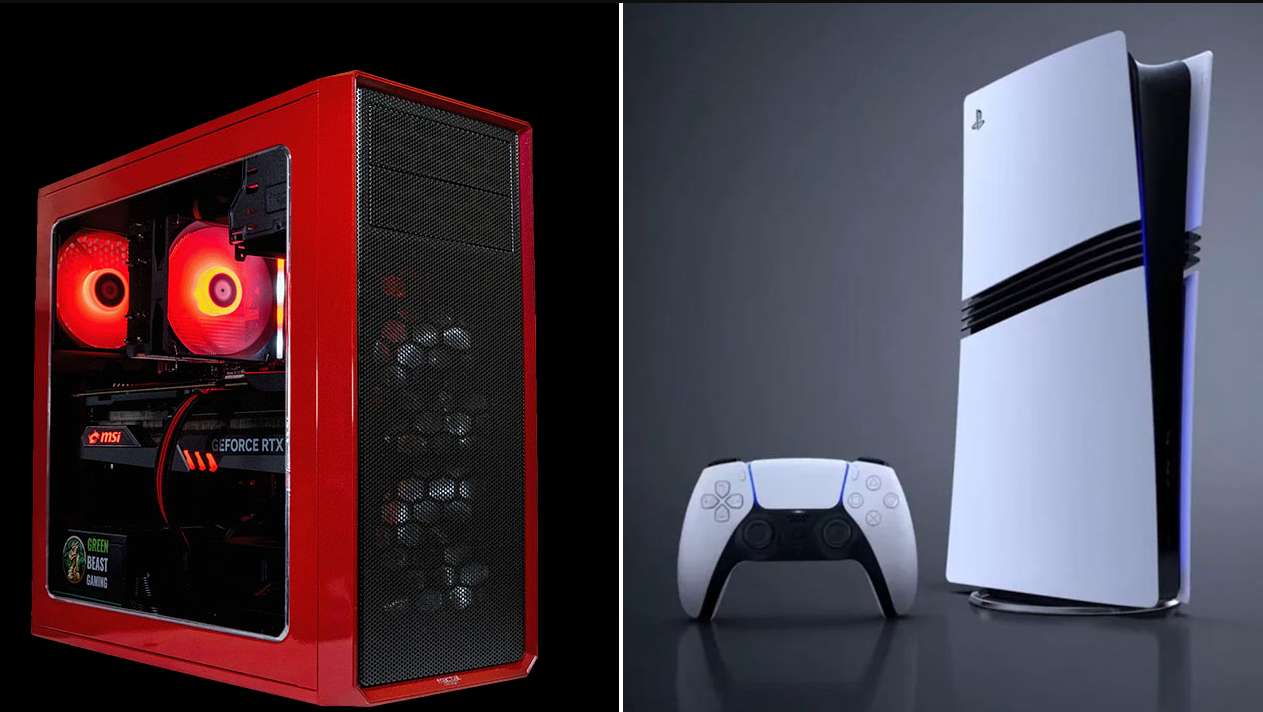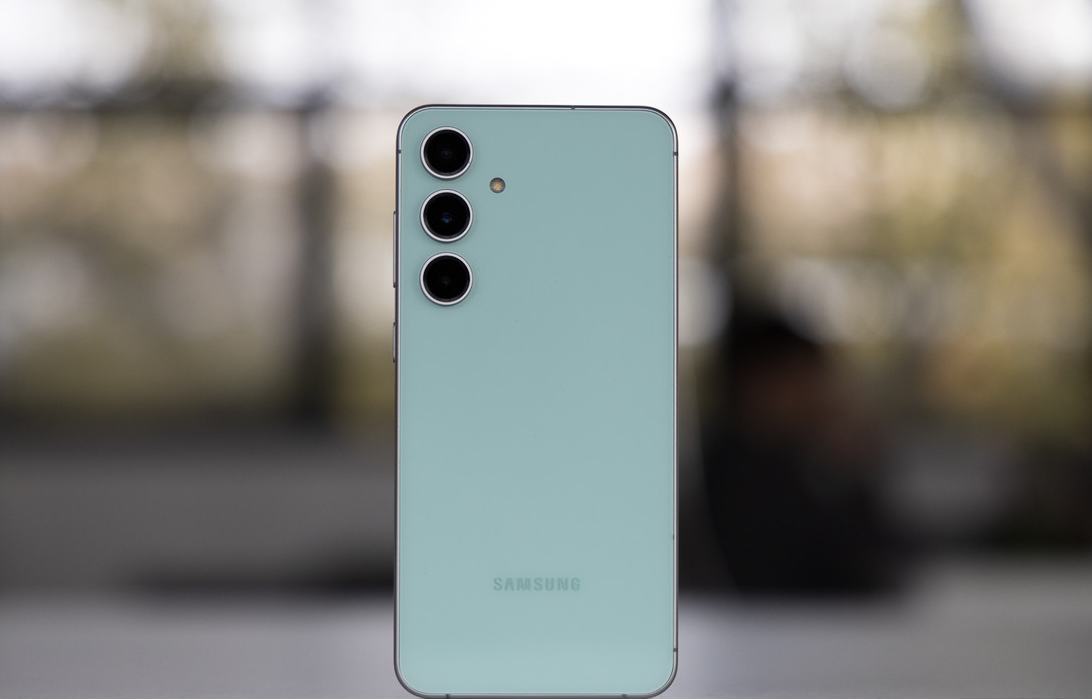In today’s world, fast and stable internet in the home is not a luxury, but a necessity. A good Wi-Fi router is needed to ensure a quality connection.
A router is a device that provides a connection between your home network and the Internet. It performs many functions, including transferring data from your Internet Service Provider to your devices such as computers, smartphones, tablets, etc.
Routers not only provide Internet access, but they also keep your home network secure. They have built-in security features such as firewalls and malware protection that help protect your devices from external threats.
Modern routers also offer many additional features such as the ability to create guest networks (to isolate guest devices from the main home network), parental controls (to control access to certain sites or limit internet usage time), and support for the latest Wi-Fi standards for maximum signal speed and range.
Thus, a router is an important part of a home network that provides Internet connectivity, security and network management.
When choosing a router, it is important to consider a few basic parameters:
- Wi-Fi standard: Different Wi-Fi standards offer different data transfer speeds. The most advanced standard at the time of writing is Wi-Fi 6 (802.11ax), which offers faster speeds and better performance on busy networks. However, devices must also support this standard to get all its benefits.
- Range: Routers can operate on one (2.4GHz), two (2.4GHz and 5GHz) or three (2.4GHz, 5GHz and 6GHz) bands. 2.4GHz offers better coverage but slower speeds, while 5GHz and 6GHz offer faster speeds but shorter range.
- Bandwidth and speed: The router’s data transfer speed is measured in Mbps. The higher the speed, the faster data can be transferred between your devices and the internet.
- Number of ports: Depending on your needs, you may want a router with multiple Ethernet ports for connecting wired devices, as well as USB ports for connecting external devices such as printers or storage devices.
- Security: Modern routers offer a variety of security features including WPA3 encryption, DDoS protection, guest networks and parental controls.
- Price: Of course, it is important to choose a router that fits your budget. It is important to remember that sometimes it is worth paying a little more for a high quality router that will provide a reliable and fast connection.
- Warranty: Warranty time and warranty service are also worth considering when choosing a router. Good warranty service can save you time and money in the long run.
- Manufacturer: Manufacturer reviews and reputation can also be an important factor when choosing a router. Some brands are known for their reliability, quality of service and product longevity.
- Management features: Some routers offer apps for easy management of settings, such as changing your Wi-Fi password, setting parental controls, or monitoring traffic.
- MIMO and MU-MIMO technologies: These allow the router to support multiple connections simultaneously, improving Wi-Fi speed and stability in a home where many devices are in use at the same time.
Aside from that, it’s always a good idea to read reviews from other users before buying a router.
There are many models on the market, but how do you choose the right one for you? In this article, we’ll look at the top 7 best Wi-Fi routers today to help you make the right choice.
1. Asus RT-AX88U
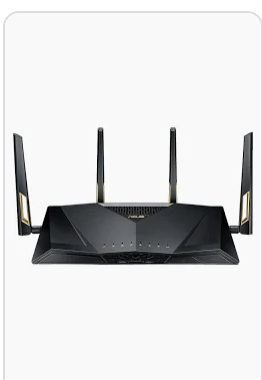
This router, manufactured by the famous Taiwanese company Asus, is a new generation router equipped with 802.11ax (Wi-Fi 6) technology. The device has 4 antennas, 1 GHz dual-core processor and support for MIMO technology. It also has four gigabit LAN ports and two USB 3.1 ports. The warranty from the manufacturer is two years.
| Pros | Minuses |
| AiProtection Pro support for enhanced security | High price |
| AiMesh networking capability | May require technical skills to set up |
| 4 gigabit LAN ports for wired devices |
2. TP-Link Archer C7
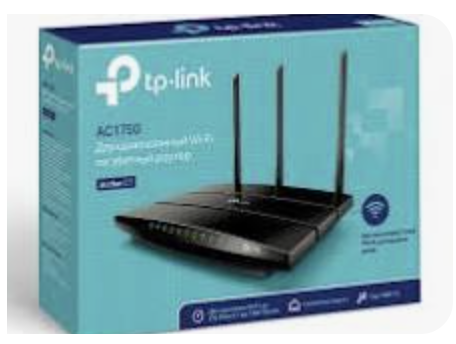
TP-Link Archer C7 is a router equipped with tri-band Wi-Fi technology (2.4 GHz and two 5 GHz bands), dual-core processor, two USB ports and support for 802.11ac (Wi-Fi 5). The manufacturer’s warranty is two years.
| Pros | Minuses |
| Can be configured via the Tether app | No Wi-Fi support 6 |
| Guest network for visitors | The design could have been more modern |
| Parental control functions |
3. D-Link DIR-890L

A flagship tri-band Wi-Fi router supporting 802.11ac (Wi-Fi 5). With six built-in antennas and an advanced routing algorithm, this router offers a wide coverage range and high data transfer speeds of up to 3200 Mbps. It is equipped with four Gigabit Ethernet ports for direct cable connection and two USB ports for connecting external devices. The design of the router is a stylish spaceship that looks great on any desk. The manufacturer provides a two-year warranty.
| Pros | Minuses |
| Beautiful and unique design | High price |
| Large coverage range | No Wi-Fi support 6 |
| Simple and straightforward setup via the app |
4. Xiaomi Mi Router 4A Gigabit

Xiaomi Mi Router 4A Gigabit is a great solution for those looking for a quality dual-band router at an affordable price. This router supports the 802.11ac (Wi-Fi 5) standard and offers data transfer speeds of up to 1167 Mbps. It is equipped with four built-in antennas and a dual-core processor, which guarantees a stable connection and fast internet even when a large number of devices are connected. The manufacturer provides a one-year warranty.
| Pros | Minuses |
| Very affordable price | No USB ports |
| Easy to install and use | No Wi-Fi support 6 |
| Stable connection thanks to Beamforming technology |
5. Asus ROG Rapture GT-AC5300
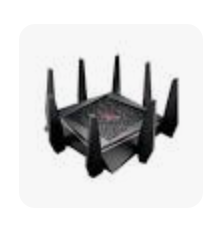
Offers impressive specifications including 802.11ac (Wi-Fi 5) technology, an eight-core processor, 8 Gigabit LAN ports and two USB 3.0 ports. The device also features support for WTFast and Gamers Private Network gaming services. The manufacturer’s warranty is two years.
| Pros | Minuses |
| 8 Gigabit Ethernet ports for wired devices | High price |
| Modern and aggressive design | Bulky size |
| Support for WTFast and Gamers Private Network gaming services |
6. Netgear Nighthawk AX8
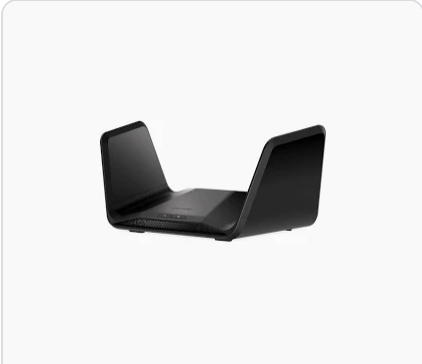
A next-generation router that supports 802.11ax (Wi-Fi 6). With eight data streams, this router provides uninterrupted connectivity and fast internet speeds for all your devices. It is equipped with four Gigabit Ethernet ports for direct cable connection and two USB 3.0 ports for connecting external devices. The design of the router resembles a spaceship, which gives it a modern and innovative look. The manufacturer provides a two-year warranty.
| Pros | Minuses |
| Wi-Fi Support 6 | High price |
| It looks like it’s from a spaceship | Requires more space due to its size |
| Parental control and guest network option |
7. TP-Link Deco M5
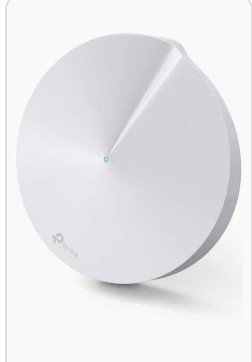
This is a tri-band mesh system that provides stable and fast Wi-Fi connectivity over large areas. The kit includes three devices, each with two Ethernet ports and supports the 802.11ac (Wi-Fi 5) standard. This system differs from traditional routers in that it automatically switches the devices to the best available channel and frequency, which maximises the speed and stability of the connection. The manufacturer provides a two-year warranty.
| Pros | Minuses |
| Modern design and compact size | No Wi-Fi support 6 |
| Can be installed and controlled via the Deco app | No USB ports |
| Built-in security and parental control features |
Choosing the best router is not always an easy task, especially considering the number of options available on the market. However, beyond specific models, it is important to know what features and specifications are really important to you in order to make the right choice.
Modern routers can offer many useful features such as support for new Wi-Fi standards, multiple Ethernet ports, protection against DDoS attacks, and even support for guest Wi-Fi systems. Ultimately, however, choosing the best router will depend on your individual needs, your devices, the size of your home and your budget.
In addition, it is always a good idea to pay attention to user reviews and ratings to see how specific models perform in real life. And, of course, you can’t forget the importance of a good warranty service. Although all electronic devices can fail, it is important to choose products from manufacturers that support their customers in such cases.
In the end, the best router is the one that fits your needs, provides a stable and fast internet connection, and delivers reliable performance over the long term. We hope this review has helped you find the right router for you.

